The West Kootenay Rural Teacher Education Program (WKTEP) is located in Nelson, BC and surrounding communities.
WKTEP has a strong focus on rural and small school settings, recognizing that they offer exciting educational opportunities for teachers. There is also an emphasis on place-conscious learning with strong ties to local communities and school districts.
The West Kootenay Rural Teacher Education Program provides teacher candidates with the opportunity to develop the professional qualities and effective practices for teaching in today’s complex learning environments with a strong focus on community, collaboration, and innovation.
WKTEP offers the full complement of UBC’s BEd coursework and practica, with both a two-week and a 10-week practicum hosted by four school districts (SD8, SD10, SD20, SD51 as well as many other rural BC public school districts), and a three-week Community Field Experience in non-formal settings.
Elementary and secondary teacher candidates are together for some courses in both on-campus and in-school settings, and experienced tutors mentor secondary teacher candidates in selected teachable subjects.
Learn more about WKTEP in the tabs below.
Program Overview
In September, teacher candidates will be assigned to a host school, mentor teacher (school advisor), and practicum classroom. Many placements will require teacher candidates to provide their own transportation.
Teacher candidates will spend one day each week in their host school from October to the beginning of the extended practicum in February. Most weeks, teacher candidates will also be out in school settings with practising educators for our ‘in situ’ work.
Three or more days each week, teacher candidates will engage in course work at the UBC WKTEP Learning Centre in Nelson or in various classrooms throughout the region.
Teacher candidates will participate in three formal practicum experiences in their host schools:
- EDUC 315: 2 weeks + 1 day/week in Term 1
- EDUC 321: 1 day/week in Term 2
- EDUC 418/421: 10 weeks in Term 3
In addition, teacher candidates will take part in a Community Field Experience (CFE) for three weeks after the extended practicum.
Special Features
- Small cohort size encourages a personalized learning environment with a focus on developing a strong community of learners.
- Host school placements are individualized and support the unique strengths and areas of interest of each teacher candidate.
- WKTEP offers a variety of secondary teachable subjects including, but not limited to, Math, English, Social Studies, Physics, Biology, Chemistry, French, Physical Education, Theatre, and Visual Art.
- Elementary and secondary candidates will experience a wide array of learning environments including multi-age and alternate settings with a strong focus on rural education.
- Many WKTEP instructors are practicing educators who bring practical experience and current pedagogy to their courses.
- Strong links with our four local school districts allow for shared professional learning opportunities along side practicing teachers.
- A place-conscious lens on learning creates rich learning experiences with environmental, cultural, historical and geographic contexts with place at the core. Place-conscious learning focuses on supporting students to critically explore their own place through these lenses, to begin with examining and understanding their own communities and local environments, and to then consider the world beyond using this knowledge, framework and these thinking skills. A place-conscious lens includes Indigenous worldviews and may also include social and ecological justice.
Philosophy
Nurturing Communities of Learners
WKTEP’s school-based approach is aligned with Ministry of Education goals, grounded in current research in teacher education, and focused on the particulars of the setting and its relationship to broader contexts, especially rural communities.
Our place-conscious model is based on these three elements: enhanced educational opportunities for pre-service teachers, enriched community connections, and embedded professional growth. What underpins these elements is the belief that teachers are most effective when they have a deep and nuanced understanding of the communities where their students live.
Regular, on-going time spent in schools and focussed, purposeful in situ visitations allow for the fuller realization of WKTEP’s goals as a place-conscious, progressive, and evidence-based teacher education program. Immersion in a community context can yield important insights about the relationships between a place and the character, aspirations, and experiences of those who live there. Since cultivating place-consciousness is a well-publicized education goal, locating teacher education within communities makes good sense. This is where one’s students come from, where relationships between adults and children and youth are cultivated, and where a sense of identity beyond one’s immediate family is formed.
Using this model of teacher preparation, community becomes:
- A site of study and investigation of local-global issues, concerns and problems, including environmental, socio-cultural, health and economic, as seen through one particular locale.
- A source of expertise, talent, and “lived experience” in the form of teachers and community members who can be brought into the teacher education classroom and subsequently the K-12 classrooms where they teach and the community sites (museums, organizations, heath care facilities, and so on) where others work.
- A catalyst for curriculum enrichment and re-interpretation of learning outcomes through the lens of “place.” Curriculum itself is changed when the focus turns to what is immediately and powerfully present. In a community-based model, the curriculum learned by teacher candidates is deeply immersed in the place itself, its history, topography, natural resources, cultural heritages, and values.
- A commons for civic engagement. Teacher candidates will have ample opportunity to participate in local projects, deliberations and community planning. The idea of the public sphere and the need to contribute to the public good can be practiced at this local, intimate level, and later be shared with K-12 students.
The History of WKTEP
During the fall of 1989, in response to an anticipated teacher shortage, the BC provincial government made available funding to initiate teacher education programs in the regions of British Columbia that were distant from the degree granting universities in Vancouver and Victoria.
Following consultations with the three main BC universities, Selkirk College faculty member and Open Learning Agency manager Gerry Ehman determined that UBC was in the best position to offer such a program in the West Kootenays. UBC’s Dean of Education, Dr. Nancy M. Sheehan, visited the West Kootenays and met with Selkirk College representatives and adjacent school district superintendents to explore the feasibility of forming a consortium to sponsor a teacher education program.
After establishing that there was a need for the program, the consortium was established. It applied for and received Ministry funding for one year. For its first year, the program was restricted to elementary and secondary post–degree candidates who met UBC’s Faculty of Education admission criteria. From 1991 to 1996 WKTEP also offered a 24-Month Elementary program.
UBC, Selkirk College, the Open Learning Agency, and School Districts #7 (Nelson), #9 (Castlegar), #10 (Arrow Lakes), #11 (Trail), #12 (Grand Forks) and #13 (Kettle Valley) formed the initial program consortium. Following amalgamation, the consortium school districts included #8 (Kootenay Lake), #10 (Arrow Lakes), #20 (Kootenay-Columbia) and #51 (Boundary). The school districts provide the school advisors and the practicum facilities. The Open Learning Agency initially provided some of the pre–admission and some of the post certification course work.
The 1990/91 program was initially based at the Ootischenia Elementary School in Castlegar. Some of the instruction was delivered in other schools in Castlegar, Nelson, Trail, and Grand Forks, and the summer courses were offered on the Selkirk College campus. In 1995 the entire program moved to Selkirk College campus, with some courses still being offered in local schools.
Beginning in 2014, WKTEP implemented its school-based model with teacher candidates spending two or three days per week throughout the school year in their practicum schools and, effective August 2015, the program relocated to the UBC Learning Centre in Nelson. The WKTEP program and the UBC Learning Centre in Nelson have continued to evolve and grow at this heritage site, renovating to house three classrooms, as well as administrative space and a growing student library.
Over WKTEP’s history, more than 1000 students have graduated from the program and received their Bachelor of Education degree from the University of British Columbia. These graduates have found employment in over 80 different communities within BC, as well as in many other provinces and countries. The program maintains a high employment record, with an average of 80% of all graduates having attained full or part-time work as teachers. Many of these can be found in the local school districts as both teachers and administrators.
Hear From Our Grads
Six WKTEP graduates shared their experiences of their time as teacher candidates in the UBC BEd program.

WKTEP Elementary
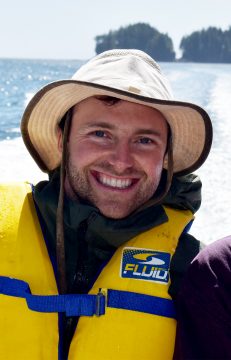
WKTEP Elementary

WKTEP Secondary
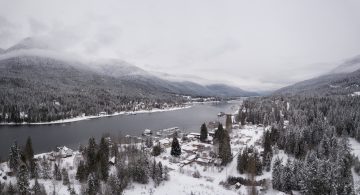
WKTEP Elementary

WKTEP Secondary

WKTEP Elementary
2024/25 Calendar
Winter Session Term 1: September 3 – December 13, 2024 |
||
| September 3, 2024 | Student Orientation / First day of classes for Term 1 | |
| September 30, 2024 | National Day for Truth and Reconciliation | University closed/No classes |
| October 14, 2024 | Thanksgiving Day | University closed/No classes |
| TBD | School-based Orientation Practicum begins | 1 day a week practicum (Mondays) |
| November 11, 2024 | Remembrance Day | University closed/No classes |
| November 12, 2024 | School-based Orientation Practicum begins | 2-week practicum |
| November 22, 2024 | School-based Orientation Practicum ends | 2-week practicum |
| December 13, 2024 | Last day of classes for Term 1 | |
| December 14, 2024 - January 5, 2025 | Winter Break | No classes |
Winter Session Term 2: January 6, 2025 – June 6, 2025 |
||
| January 6, 2025 | First day of classes for Term 2 | |
| January 23, 2025 | Travel Day / Local Career Fair & Pro-D Day at WKTEP | |
| January 24, 2025 | UBC Education Career Fair in Vancouver | No classes at WKTEP |
| February 3-7, 2025 | School-based Orientation Practicum – Observation Week | |
| February 10, 2025 | School-based Orientation Practicum begins | 1 day a week practicum |
| February 17, 2025 | BC Family Day | University closed/No classes |
| February (Date TBA) | Summer registration opens | |
| March 10, 2025 | School-based Orientation Practicum ends | 1 day a week practicum |
| March 21, 2025 | Last day of classes for Term 2 | |
| March 24-28, 2025 | March Break – Practicum Prep Week | |
| March 31, 2025 | School-based Extended Practicum (EDUC 418/421) begins | 10-week practicum |
| April 18, 2025 | Good Friday | University closed/No classes |
| April 21, 2025 | Easter Monday | University closed/No classes |
| May 19, 2025 | Victoria Day | University closed/No classes |
| June 6, 2025 | School-Based Extended Practicum (EDUC 418/421) and Term 2 end | |
Summer Session: June 9 – July 25, 2025 |
||
| June 9, 2025 | Community Field Experience (EDUC 430) begins | 2 weeks |
| June 20, 2025 | Community Field Experience ends | |
| June 23-30, 2025 | No classes | |
| July 1, 2025 | Canada Day | University closed/No classes |
| July 2, 2025 | First day of classes for Summer Session | |
| July 25, 2025 | Last day of classes for Summer Session | |
2025/26 Calendar
Winter Session Term 1: September 2 – December 12, 2025 |
||
| September 2, 2025 | First day of classes for Term 1 | |
| September 30, 2025 | National Day for Truth & Reconciliation | University closed/Classes cancelled |
| October 13, 2025 | Thanksgiving Day | University closed/Classes cancelled |
| TBD | School-based Orientation Practicum begins | 1 day a week practicum (Mondays) |
| October 27, 2025 | School-based Orientation Practicum begins | 2-week practicum |
| November 11, 2025 | Remembrance Day | University closed/Classes cancelled |
| November 7, 2025 | School-based Orientation Practicum ends | 2-week practicum |
| December 12, 2025 | Last day of classes for Term 1 | |
Winter Session Term 2: January 5 – June 5, 2026 |
||
| January 5, 2026 | First day of classes for Term 2 | |
| January 22, 2026 | Travel Day for UBC Education Career Fair Local Career Fair & Pro-D Day at WKTEP | Classes cancelled |
| January 23, 2026 | UBC Education Career Fair in Vancouver | Classes cancelled at WKTEP |
| February 2-6, 2026 | School-based Orientation Practicum – Observation Week | |
| February 9, 2026 | School-based Orientation Practicum begins | 1 day a week practicum |
| February 16, 2026 | BC Family Day | University closed/Classes cancelled |
| February (Date TBA) | Summer registration opens | |
| March 12, 2026 | School-based Orientation Practicum ends | 1 day a week practicum |
| March 20, 2026 | Last day of classes for Term 2 | |
| March 23-27, 2026 | March Break – Practicum Prep Week | |
| March 30, 2026 | EDUC 418/421 (School-based Extended Practicum) begins | 10-week practicum |
| April 3, 2026 | Good Friday | University closed/Classes cancelled |
| April 6, 2026 | Easter Monday | University closed/Classes cancelled |
| May 18, 2026 | Victoria Day | University closed/Classes cancelled |
| June 5, 2026 | EDUC 418/421 (School-Based Extended Practicum) and Term 2 end | |
Summer Session: June 8 – July 24, 2026 |
||
| June 8, 2026 | Community Field Experience (EDUC 430) begins | 2 weeks |
| June 26, 2026 | Community Field Experience ends | |
| June 29, 2026 | First day of classes for Summer Session Term 2 | |
| July 1, 2026 | Canada Day | University closed/Classes cancelled |
| July 24, 2026 | Last day of classes for Summer Session Term 2 | |
Our Team

Dr. Leyton Schnellert, Academic Lead
Dr. Leyton Schnellert is WKTEP’s academic advisor. He is an associate professor in UBC’s Department of Curriculum & Pedagogy and Eleanor Rix Professor in Rural Teacher Education. His scholarship attends to how teachers and teaching and learners and learning can mindfully embrace student diversity and inclusive education. Dr. Schnellert is the Pedagogy and Participation research cluster lead in the UBC Institute for Community Engaged Research and co-chair of BC’s Rural Education Advisory. His community-based collaborative work contributes a counterargument to top-down approaches that operate from deficit models, instead drawing from communities’ funds of knowledge to build place-conscious, participatory, and culturally responsive practices. Dr. Schnellert has worked with rural and remote school districts throughout BC, and the Yukon and Northwest Territories. His books, films and research articles are widely referenced in local, national, and international contexts. See ubc.academia.edu/LeytonSchnellert for papers, articles and book chapters, and films.
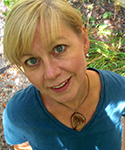
Susanne Maguire, Site Coordinator (Elementary)
Since moving west from Ontario to attend the UBC-Vancouver teacher education program, Susanne has made Nelson home. Over the past 25 years, she has taught grades K to 7, facilitated the district literacy programming and supported provincial associations and professional learning throughout the province in the areas of pro-d development and science education. She completed her Master of Social Policy, specializing in global educational policies from the University of Sydney, Australia. Her latest passion is learning more about educational facility design and its impact on student learning and teacher collaboration. Susanne is passionate about mentorship, the nature of learning and loves the challenge of supporting and personalizing learning for all. Susanne is a wife, and a mom to two daughters. She loves renovating her heritage home, travelling, reading and being in or on the water, whether it be in a boat or on skis. She is greatly appreciative of the Nelson arts community both as spectator and chauffeur to the many opportunities for her children.
Susanne looks forward to deepening her practice through shared experiences and conversations with emerging educators.
susanne.maguire@ubc.ca
250 551 1048

Denise Flick, Site Coordinator (Secondary)
Denise Flick has been teaching Mathematics – Elementary & Middle Years, as well as the Aboriginal Education in Canada course at WKTEP for many years. Recently she has joined UBC/WKTEP in an enhanced capacity. As a program coordinator and faculty advisor, Denise will be teaching and supporting WKTEP students throughout their time as teacher candidates.
Prior to leaving her school district, teaching in the K-12 setting, district learning coordinator and school administrator were positions in which she served. Her work at a district level included supporting teaching practice and professional development and supporting students, families, and educators as principal at alternate, elementary and secondary schools.
Denise is a graduate from UBC with a Bachelor of Education. She obtained a Masters in Leadership and Administration and then, returned to UBC to earn a Masters in Educational Technology.
A mother of two and hockey billet mom during the season, Denise lives with her husband in Trail. She loves gardening and all things educational. Her great joy is being near the water and appreciating the seasons.
denise.flick@ubc.ca
250 231 0466
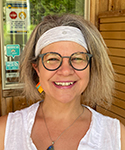
Lori Barrett, Sessional Lecturer/Coordinator
Lori Barrett was born and raised in St. John’s, Newfoundland. She studied music and music education at Memorial University of Newfoundland (1994), and obtained her Master of Education (Educational Contexts) degree from the University of Calgary (2010.) She has taught music in public school systems in six different provinces at every level from K-12, and has also worked as a vice-principal in Northern Saskatchewan at a school that served several Indigenous communities. Lori is also a classically trained bassoonist and has performed with several orchestras across the country, including the Okanagan Symphony Orchestra and the Symphony of the Kootenays.
This is Lori’s third year with WKTEP where she is an instructor, faculty advisor and coordinator of distance practica and CFE. Prior to moving to the Kootenays, Lori spent several years as the field experience/practicum coordinator and sessional instructor with the Bachelor of Education program at Mount Royal University in Calgary. In addition to her position at WKTEP, Lori has a private music teaching studio called Boundless Sounds at her home in Christina Lake. In her “spare time”, Lori loves to go RV’ing with her husband, Andreas, and their cuddly Labradoodle, Milo.
lbarre03@mail.ubc.ca
250 444 5354
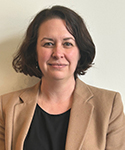
Melodie Rae Storey, Administrative Assistant
Melodie Rae loves her hometown of Nelson, and left only to pursue higher education (BA degree in History from UVic; Masters of Arts from Regent College). Her professional background in libraries has given her exceptional experience at coordination and administrative support, as well as advanced tech skills. Though she has left the library world, she can still be counted on to give out book recommendations! She looks forward to facilitating a smooth and positive experience for all who connect with the UBC WKTEP office.
melodierae.storey@ubc.ca
250 352 5112
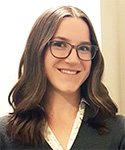
Melanie Leeming, Administrative Assistant
Currently on leave
Melanie Leeming grew up in Nelson. Inspired by all that the Kootenays had to offer, she pursued a career in Hospitality and Tourism. She has a diploma in Business Administration, specializing in Tourism Management from Camosun College. For 17 years she worked in various sectors of the tourism industry including Visitor Services, Food & Beverage, Adventure Tourism, and Accommodation, most recently as Sales & Conventions Manager for Prestige Hotels in Nelson.
In 2018 and 2019, Melanie joined Selkirk College’s Resort & Hotel Management program as Instructor of Housekeeping & Maintenance Management.
Melanie also has Level 1 Nutrition Coach Certification from Precision Nutrition, and is a certified Fitness Professional with the BC Recreation and Parks Association. She enjoys cooking healthy meals for her family and friends, exercising, and a variety of outdoor recreation activities.
She looks forward to bringing her passion for community, her background in customer service and administration, and her bright personality to the UBC WKTEP office.
melanie.leeming@ubc.ca
250 352 5112
How to Apply
Admissions requirements are the same as the other Bachelor of Education Programs at UBC Vancouver campus. Please visit our Admissions page for more information.
Contact us
WKTEP OFFICE:
#2 – 266 Baker Street
Nelson, BC V1L 4H3
wktep.educ@ubc.ca
250 352 5112
Admissions question? Please contact the admissions team in the Teacher Education Office.

